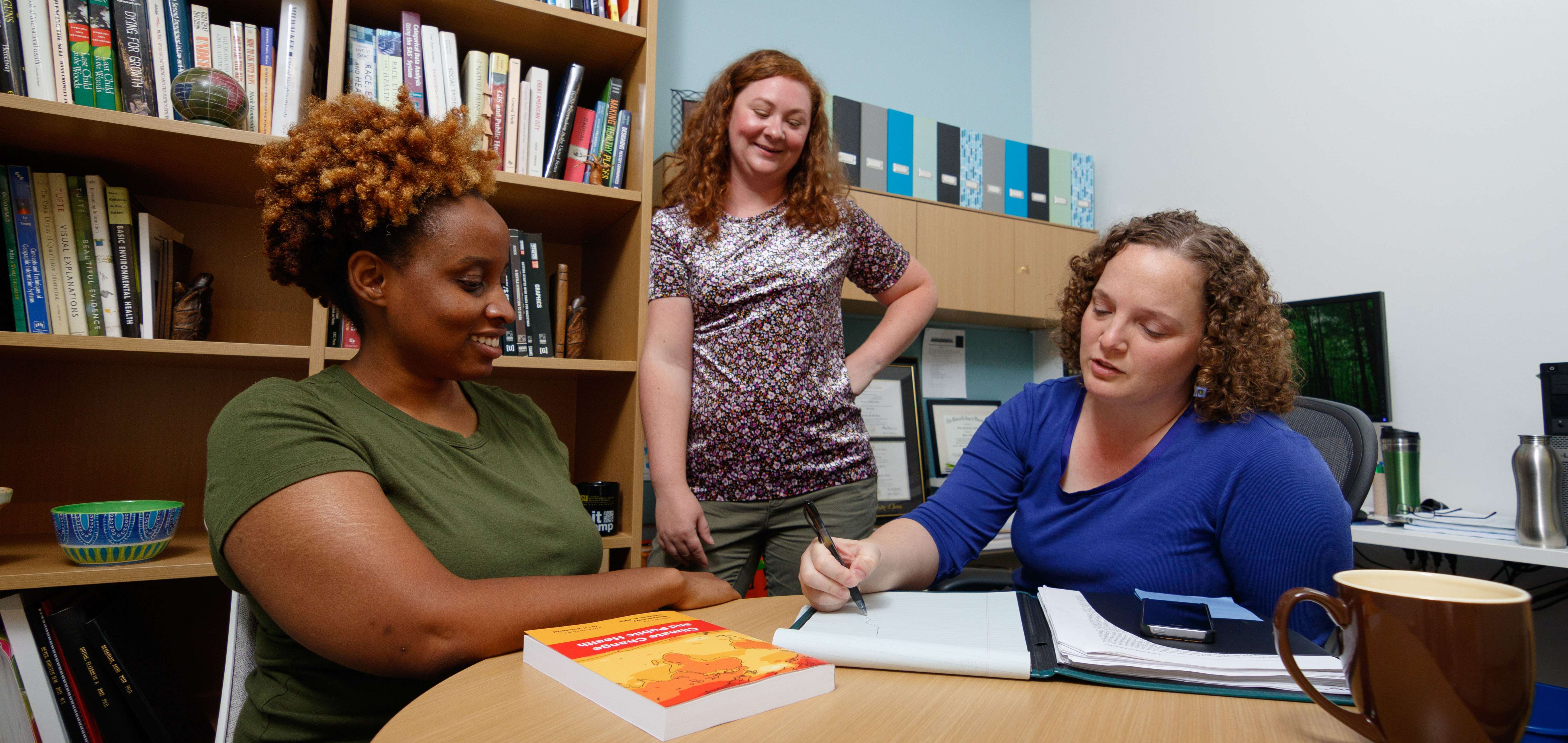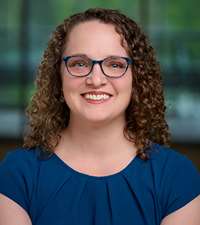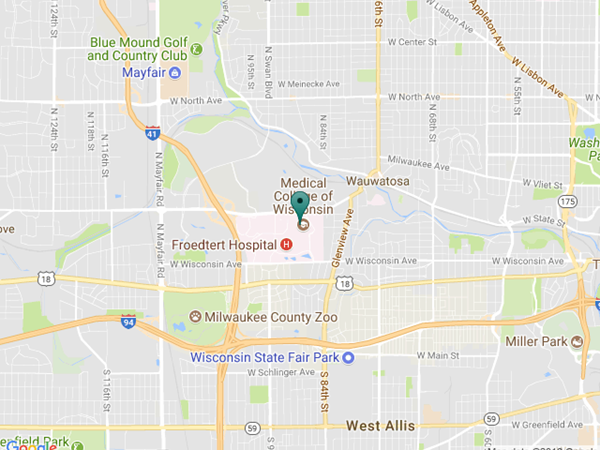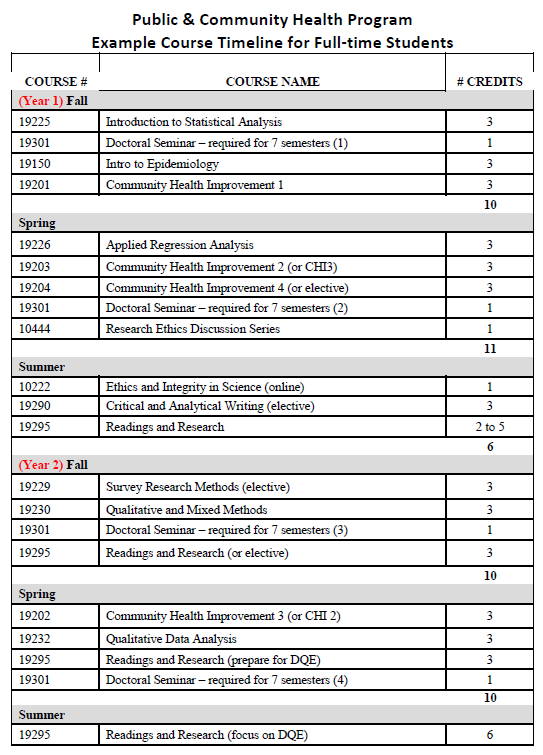Public and Community Health (PhD) at the Medical College of Wisconsin

Message from the Director

Kirsten M. Beyer, PhD, MPH, MS, Associate Professor
PhD Program in Public and Community Health
PhDPCH@mcw.edu
(414) 955-7530
The students in our program come from a variety of personal and professional backgrounds with a shared interest in improving the health of our communities - locally, nationally and globally. They gain a strong foundation in the public health and social sciences and cultivate expertise in community health improvement, community engagement, and health equity. Students benefit from numerous opportunities to work with community organizations as well as MCW research faculty, clinicians and academic centers. Students have been successful in obtaining extramural funding for their dissertation work, including from the National Institutes of Health. Alumni are highly successful in securing positions in academia, government, and the non-profit sector after graduation, including at foundations such as the Robert Wood Johnson Foundation and governmental agencies such as the Centers for Disease Control and Prevention. We look forward to welcoming new students, both full-time and part-time, who seek to improve health and enhance health equity at home and abroad.

Carissa Tomas, PhD
Public & Community Health Statistical Director
Carissa Tomas, PhD, is an assistant professor of epidemiology and social sciences and deputy director of the Division of Data Surveillance and Informatics in the Comprehensive Injury Center at the Medical College of Wisconsin. Dr. Tomas earned her PhD in Neuroscience from the University of Wisconsin-Milwaukee. Though a neuroscientist by training, Dr. Tomas has extensive experience applying complex statistical approaches and machine learning techniques to “big-data” sources beyond the neurosciences. She has evaluated biological, neural, behavioral, and socioenvironmental domains to uncover the complex influences underlying mental health after traumatic injury. She uses cutting-edge statistical and data science applications with large-scale datasets from consortiums and databases to understand the complex dynamics of post-trauma outcomes. Dr. Tomas joined MCW in 2021 and has served the program as a dissertation committee member for several PCH students and directed and guest lectured in courses at MCW and UW-Milwaukee.

Sara Kohlbeck, PhD, MPH
Public & Community Health Assistant Director
Sara Kohlbeck, PhD, MPH, is the director of the Division of Suicide Research and Healing in the Comprehensive Injury Center, and an assistant professor in the Department of Psychiatry and Behavioral Medicine. As a graduate of the PhD PCH program, Dr. Kohlbeck has a unique perspective into the program as a former student and is excited to use that experience to continue the growth of this program. Dr. Kohlbeck also has a Master of Public Health from UW-Milwaukee, which afforded her experience in applied public health as well. Dr. Kohlbeck also received her Bachelor of Science in Education from UW-Oshkosh, so she is formally prepared in secondary education. Dr. Kohlbeck has had the opportunity to guest lecture in courses at MCW, UW-Milwaukee, and Marquette, and mentors undergraduate, graduate, and medical students in her role in the Comprehensive Injury Center.
Public & Community Health (PhD) Program Details
About the Program
MCW's Institute for Health & Humanity offers the first PhD program of its kind in Wisconsin and one of very few nation-wide with the purpose of transforming the research paradigm in public and community health by integrating the rigors of traditional public health sciences with the essential components of community health improvement through participation and partnership. This program is now offered in both a part-time and full-time format.
PhD Program Goals- Educate graduates who will conduct original research, impact policy development and become future faculty scholars with public and community health expertise.
- Emphasize integrated, interdisciplinary approaches to address important public and community health issues.
Capitalize on the diverse strengths of health sciences, population health, medicine, nursing and the social and behavioral sciences.
Current Students
Competencies and Curriculum
These competencies will be achieved through coursework, seminars, teaching, research projects, readings and research and the dissertation. While there are core courses, doctoral training is individualized and tailored to the interests and needs of the particular student. The responsibility of translating program requirements into an individualized program lies with the student and the faculty who are working with the student, including the faculty advisor, Faculty Committee and Student Advisory Committee. Intellectual independence, self-initiation and the ability to take charge of a body of knowledge with confidence and critical acumen are qualities to be developed throughout the program.
Competencies
Basic Public Health Sciences
- Demonstrate an in-depth knowledge and understanding of issues in substantive interest area in the public and community health sciences.
- Display a high degree of mastery in appropriate theories, analytical skills, research design and methodology in the public and community health sciences.
Partnerships
- Demonstrate experience in developing and sustaining community partnerships.
- Identify and apply strategies for interdisciplinary approaches that support collaborative models that interface public health with other health professional disciplines so as to improve the health of the public and community.
Research Preparation, Data Collection and Analysis
- Identify knowledge gaps in the selected field, critically analyze the literature, synthesize relevant information, and formulate focused research questions to address the gaps.
- Design and conduct original research that contributes to knowledge in selected field.
- Incorporate knowledge of cultural, social, behavioral and biological factors in formulating research questions, designing and implementing research.
- Identify the ethical implications of research methods.
Policy Development, Program Planning and Management
- Demonstrate knowledge in public and community health policy development, implementation and evaluation.
- Apply systems thinking skills in the assessment, development, implementation and evaluation of community health improvement efforts.
- Understand the grant writing process and demonstrate the ability to write and manage research grant proposals.
Dissemination to Professional and Lay Audiences
- Translate and disseminate research findings in order to improve public and community health in diverse populations.
- Effectively communicate orally and in writing, present public and community health issues and disseminate findings in area of expertise to appropriate professional and public audiences.
- Demonstrate teaching skills in working with students and other professionals in academic, research or practice settings and community settings.
- *Adapted from the following sources: Association of Schools of Public Health, Council on Linkages between Academia and Practice and the American Academy of Health Behavior, and developed in collaboration with faculty from the University of Wisconsin-Milwaukee Colleges of Health Sciences and Nursing.
- View PhD Curriculum and Competencies Plan (PDF)
- See below for the curriculum details
Admissions
Academic Qualifications
In order to satisfy the minimum requirements for admission, students must:
- Present evidence of capacity for graduate study in public health.
- Have a strong foundation in the quantitative, behavioral and biological sciences, regardless of undergraduate major.
- Provide a carefully constructed personal statement describing research interests, career goals and reasons for interest in graduate school.
An official test score, GRE or otherwise, is no longer required for admission consideration. However, test score submissions will be consider if they are submitted voluntarily.
Other indicators of a commitment to a graduate program, which are carefully weighed in the admissions process, include participation in public health research, particularly mentored research programs, and related professional and life experiences.
If students have an undergraduate degree in public health, they automatically meet the requirements.
If not, students will be required to have:
- 6 credits of psychology, sociology or anthropology
- 3 credits of anatomy, physiology or biology (minimum)
- 3 credits of statistics
- 3 credits of research methods
Students deficient in any of these may still apply on the condition that they indicate a plan for completing the necessary coursework prior to matriculation.
Application Information
Applications for Fall semester admissions are due December 5th.
Additional Part-time Requirements:
- Master’s degree preferred
- Employment in relevant field
- Tuition paid by student
- One letter must be from current employer
- Part-time students have up to 7 years to complete the degree
Tuition and Fees
If you have questions regarding tuition or your account, please contact the Office of Student Accounts, at (414) 955-8172 or mcwtuition@mcw.edu. Please refer to the All Student Handbook (PDF) for tuition payment policies and information.
PhD Students
All full-time PhD degree-seeking students in good academic and professional standing receive the following financial support package:
- Full tuition coverage
- Yearly stipend ($36,355 for the '25-'26 academic year)
- Complimentary health insurance
There is no additional process to secure this package aside from accepting an offer of admission. Further, this package is guaranteed from the time of enrollment through completion of degree requirements.
Current MCW Employees
Tuition Course Approval Form - Human Resources (PDF)
Late Fees
There is a $250 late payment fee for tuition not paid on time according to the Tuition Payments policy in the All Student Handbook (PDF).
Faculty
Visit the Public & Community Health PhD Program Faculty page to learn more about our faculty members.
Curriculum Details
Follow Us On Our Socials
Stay up-to-date on events, news, and other happenings in the MCW Graduate School!




